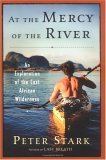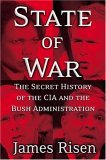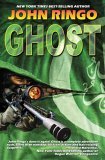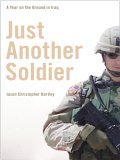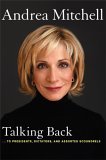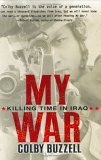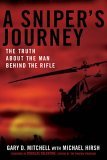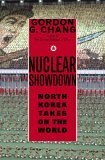An Exploration of the Last African Wilderness, by Peter Stark, Grade: A
Peter Stark’s account of a trip kayaking down Mozambique’s Lugenda River is an amazing tale. The previously uncharted 750-kilometer route is filled with rapids, waterfalls, crocodiles, hippos. And throughout the river adventure, he recounts the tales of historic explorers and wanderers throughout history. “Why are humans compelled to explore?” he wonders.
As I was raised on the European version of world events, it’s always fun to find yourself seeing the other side of the story. Hearing about Stanley and other explorers as a child, watching cartoons, Tarzan movies, and reading Edgar Rice Burroughs, I always thought that the Africans and their menagerie of beasts were the most dangerous things to encounter in Africa. Now that I’m older and have learned more, the most deadly thing to meet up with in Africa was probably the European unless you had a load of gold, rubber, or diamonds to give to them.
Stark recounts from da Gama’s visit:
The local king offered da Gama a ransom of gold plus the delivery of the Muslims whom he alleged were responsible for the grievously mistaken attack on the Portuguese trading post. Da Gama would have none of it. Instead, he captured eight or ten trading vessels coming into Calicut that did not realize the Portuguese fleet was anchored there; ordered his men to chop off the hands, ears, and noses of their crews; and sent the body parts in a boat to the King of Calicut, telling him to make a curry of the cargo. Da Gama had the still-living handless, noseless, and earless victims bound by their feet and their teeth knocked down their throats so they couldn’t untie the knots with their mouths; he had them piled in another boat, set it afire, and sent it ashore, too. When three members of one late-arriving Muslim crew pleaded that they wished to convert to Christianity before they were killed, da Gama showed them the mercy of having them baptized and strangled before they were hauled aloft and shot full of arrows like their fellow crewmen. Finally, the King of Calicut sent a large fleet against the Portuguese. Da Gama’s artillery blew that to splinters, too.
“No wonder the people we had just passed fled into the trees.
There is also in this book a great pair of river guides who embody every white South African macho archetype. These two are the only ones with the knowledge, skill, and physical ability to make the trip a success, and the author’s attempts to reconcile his own personality to theirs is well written with honesty and candor. His attempts to spend more time with actual Africans that they pass on the river is usually met with derision by the others in the group, who see little to learn from the locals and their often primitive ways.
Stark:
“We don’t have a word in our language for ‘wilderness,’” a native Mozambican villager would later tell me. “What you might call ‘wilderness’ we call ‘the place where no one lives and you are free to gather things.’”
What more can I say? Great book, A.
